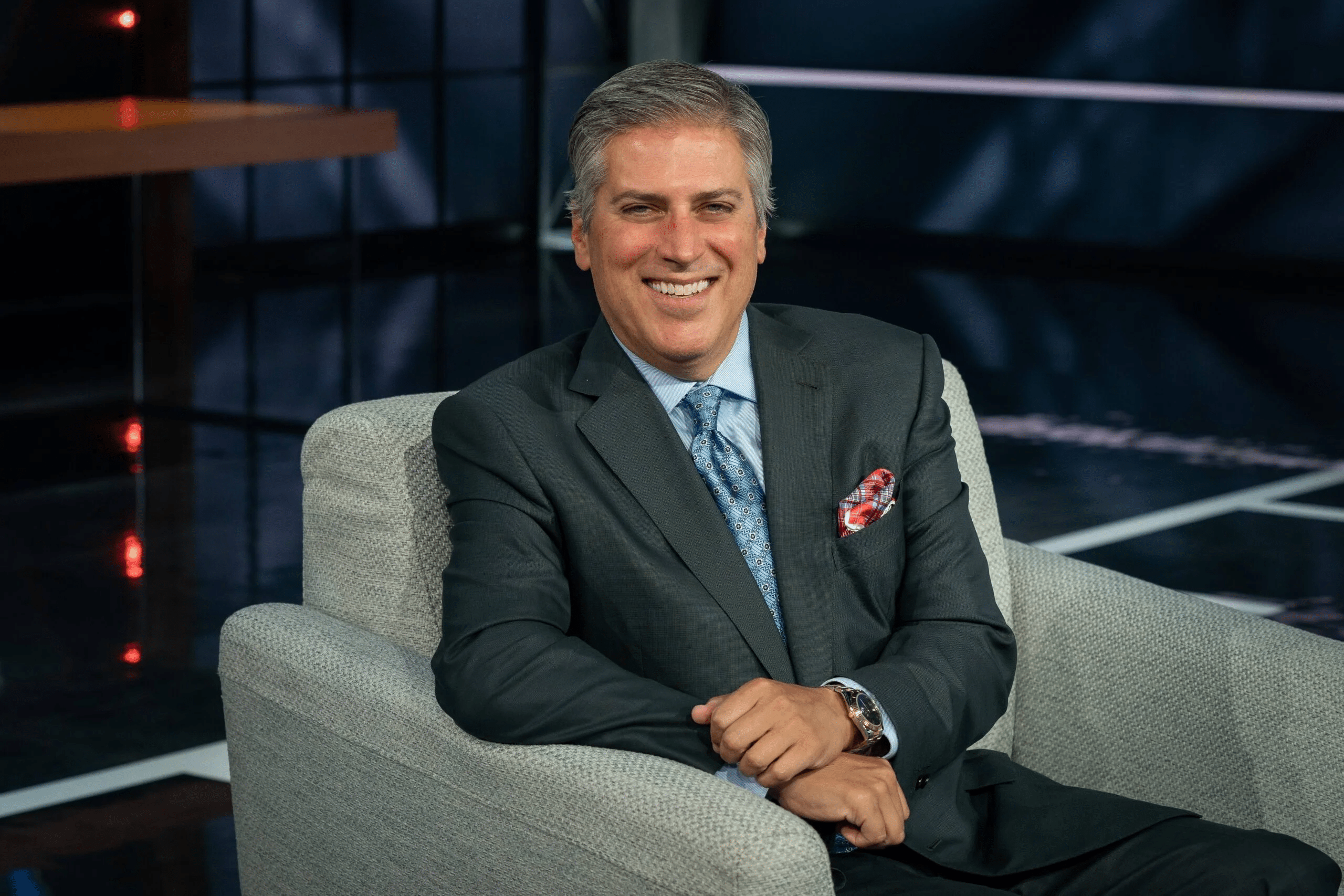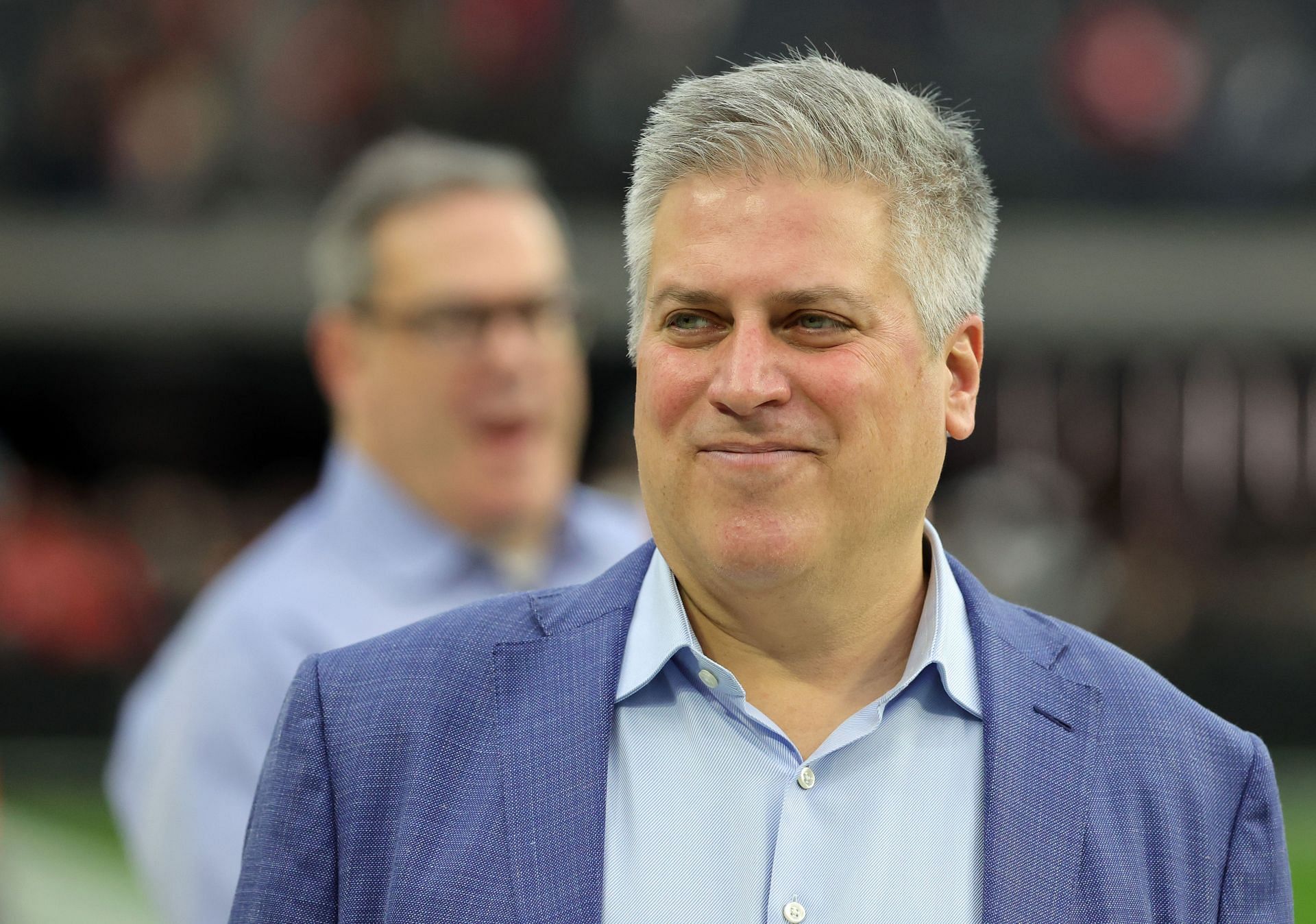It's a pretty common thing to wonder about the financial standing of people we see often in the public eye, isn't it? Like, when you watch a familiar face on television, someone who has been around for a long time, your mind might just wander to questions about their financial success. That's certainly the case for someone like Steve Levy, a voice many of us have come to recognize from sports broadcasts. People are often curious about his net worth, wanting to get a sense of his financial journey.
Figuring out the exact net worth of public personalities can be a bit of a puzzle, you know? Unlike publicly traded companies, most individuals don't have to share their financial statements with everyone. So, while we might hear about entrepreneurs and innovators like Steve Jobs, whose financial story is fairly well-documented through his work with Apple, NeXT, and Pixar, the details for broadcasters like Steve Levy are usually kept private. That's just how it tends to be for many in the media world, so.
This article will explore the general ways people try to estimate the wealth of public figures, using Steve Levy as a prime example of a respected sports commentator. We'll look at the typical income streams and factors that could influence someone's financial picture in the media world, offering some insight into how these figures are often put together. Our immediate text, for instance, talks about the lives of folks like Steve Jobs or even actor Steve Carell, but it doesn't quite touch on Steve Levy's specific financial situation, which is, honestly, typical for many public figures.
Table of Contents
- Who is Steve Levy? A Look at His Career
- How Public Figures' Net Worth is Estimated
- Steve Levy: Personal Details
- The Value of Experience in Broadcasting
- Understanding Media Contracts
- What Drives Earnings in Sports Media?
- Common Questions About Steve Levy's Financial Standing
- Final Thoughts on Public Wealth
Who is Steve Levy? A Look at His Career
Steve Levy is, in a way, a familiar presence for anyone who watches sports on television, particularly if you're a fan of ESPN. He's been a prominent sportscaster for a good many years, known for his work on various programs and events. His career at the major sports network has, you know, spanned decades, allowing him to cover a wide array of sports, from hockey to football, and even the Olympics.
He first joined ESPN back in 1993, which is quite a long time ago, really. Over the years, he's taken on many different roles, including anchoring SportsCenter, which is, arguably, one of the network's most iconic shows. His steady presence and distinct voice have made him a recognizable figure, building a strong connection with viewers across the country.
Beyond SportsCenter, Levy has also provided play-by-play commentary for hockey, a sport he has a particular passion for, and has even called NFL games. This kind of versatility and long-term commitment to a single network is pretty rare in the fast-paced world of sports media, which, in some respects, speaks volumes about his professional standing.
How Public Figures' Net Worth is Estimated
When people try to figure out the net worth of public figures like Steve Levy, they often look at several key areas. It's not usually just one source of money; it's more like a collection of different things that add up. This process involves a bit of educated guesswork, since private financial details are, you know, not out there for everyone to see.
For example, you might think about what someone earns from their main job. Then there are other ways they could be making money, perhaps from things outside their primary work. And, of course, what they own versus what they might owe also plays a big part in the overall picture. It's a pretty complex calculation, honestly, that usually involves making some smart assumptions based on public information.
Salary and Contracts
The most obvious part of a public figure's wealth comes from their main job. For someone like Steve Levy, this would be his salary from ESPN. These kinds of contracts, particularly for long-standing broadcasters, can be pretty substantial, reflecting their experience and their value to the network. The length of time they've been with a company, and the prominence of their roles, often dictate how much they earn, too.
Major networks often pay their top talent very well to keep them from going to competitors. So, a broadcaster who has been a consistent face for decades, anchoring major shows or calling big games, would likely command a significant annual income. These figures are not always made public, but industry insiders and media reports often give us a general idea of the pay scales for such roles, more or less.
A new contract, or a renewal of an existing one, could significantly change someone's financial standing. It's a big part of how these individuals build their personal wealth over time. The terms of these agreements can be pretty complex, including bonuses for specific assignments or even performance incentives, which is just a little extra.
Endorsements and Sponsorships
Beyond their regular salary, many public figures, especially those with high visibility, earn money through endorsements. This means they get paid to promote products or services. A well-known sportscaster, for instance, might appear in commercials for anything from car brands to sports equipment. This is, you know, a pretty common way for them to add to their income.
These deals can be quite lucrative, sometimes even surpassing their base salary, depending on their level of fame and the reach of their platform. The more trusted and recognizable a personality is, the more appealing they become to advertisers. It's a clear way for companies to connect with an audience that already trusts the public figure's voice, that.
So, while we might not see Steve Levy in every commercial break, the possibility of such arrangements always exists for someone of his stature. These additional income streams are often a significant, if somewhat hidden, part of a public figure's overall financial picture. It's an area that's hard to pin down without direct knowledge, too it's almost.
Investments and Other Ventures
Like many people with substantial incomes, public figures often invest their earnings. This could include real estate, stocks, bonds, or even private businesses. These investments can grow over time, adding considerably to their net worth. It's a pretty smart way to build long-term wealth, actually.
Some personalities might also have side ventures, like writing books, giving speeches, or even owning a small business. These activities, while not always as high-profile as their main job, can certainly contribute to their overall financial health. We often don't hear about these private endeavors, which makes estimating their full wealth even harder, frankly.
The ability to make wise investment choices, or to have good financial advisors, plays a significant role here. A person who has been earning a high income for many years has had more opportunities to invest and grow their money. This is, in a way, a silent but powerful component of their financial journey.
Challenges in Estimation
It's really important to remember that any published net worth figure for a public figure is usually just an estimate. Unless they publicly disclose their finances, or they're involved in a very public financial transaction, the exact numbers are almost always unknown. There are so many private factors that contribute to a person's actual wealth.
Things like personal debt, mortgages, and private expenses are never factored into these public estimates. Plus, the value of investments can go up and down, making a precise calculation difficult at any given moment. So, while it's fun to speculate, it's pretty much always an educated guess, you know, not a hard fact.
The information provided in our source text, which discusses Steve Jobs's work with Apple and Pixar, or Steve Carell's acting career, really highlights how different individuals have different paths to wealth. But it doesn't give us the specific financial details for Steve Levy, which means we're left to consider the general principles of wealth estimation for someone in his position. That's just how it is.
Steve Levy: Personal Details
While specific financial figures for Steve Levy are not publicly disclosed, we can consider the kinds of personal details that often get discussed when talking about a public figure's life and career. These details help paint a picture of the person, even if they don't give us exact numbers about their money.
Here's a general outline of what someone might look for when trying to gather information about a prominent individual, like Steve Levy. This table represents the typical categories of information that are often of interest to the public, even if precise values are not available from our immediate source text.
| Category | Details (General/Conceptual) |
|---|---|
| Full Name | Steven "Steve" Levy |
| Profession | Sportscaster, Commentator |
| Primary Employer | ESPN |
| Years Active | Since the early 1990s (at ESPN) |
| Key Roles | SportsCenter Anchor, Play-by-Play Commentator (Hockey, NFL) |
| Education | Typically, a degree in broadcast journalism or a related field (specifics often private) |
| Family Life | Often kept private by public figures, though some details may emerge over time |
| Known For | Consistent presence, distinctive voice, versatility in sports coverage |
The Value of Experience in Broadcasting
In the world of sports broadcasting, experience is, you know, a really big deal. Someone who has been on air for decades, like Steve Levy, brings a certain level of credibility and familiarity that newer faces just can't match. This long tenure often translates into higher pay and more secure contracts, which makes a lot of sense, really.
Broadcasters with extensive experience have seen many major sporting events and interviewed countless athletes and coaches. This kind of background builds a deep understanding of the sports they cover, which is something viewers appreciate. It also means they've built a strong professional reputation within the industry, which is pretty valuable, you know.
Their ability to handle live situations smoothly, to react quickly to breaking news, and to maintain a calm demeanor under pressure is something that comes with years of practice. This expertise is, arguably, a significant factor in their market value and, consequently, their potential earnings over a career. It’s just a little bit of what makes them so good at their job.
Understanding Media Contracts
Media contracts for prominent broadcasters are usually quite complex, as a matter of fact. They're not just about a simple annual salary. These agreements often include clauses for exclusivity, meaning the talent can only work for that specific network, and terms for how many hours they're expected to be on air or how many events they must cover.
Sometimes, contracts might include bonuses for reaching certain viewership numbers or for covering high-profile events like the Super Bowl or the Stanley Cup Finals. These incentives can add a good chunk of money to their overall compensation. It’s a way for networks to align the talent’s interests with their own success, which is smart, you know.
Negotiations for these contracts can be pretty intense, with agents playing a big role in getting the best possible terms for their clients. The market value of a broadcaster can change based on their popularity, their unique style, and the demand for their specific skills. So, a long-standing figure like Steve Levy would likely have had many such negotiations over his career, shaping his financial path.
What Drives Earnings in Sports Media?
Several things contribute to how much someone earns in sports media. One big factor is the size and reach of the network they work for. ESPN, being a major player, generally pays its talent more than smaller regional networks might. The bigger the platform, the bigger the potential for earnings, that’s just how it is.
The specific role a person plays also matters a lot. An anchor who hosts a flagship show or a play-by-play commentator for major league games typically earns more than someone who covers less prominent events or works behind the scenes. The level of visibility directly relates to their earning potential, you see.
Popularity and public appeal are also really important. Broadcasters who connect well with the audience, who are seen as knowledgeable and trustworthy, become more valuable to their employers. This kind of personal brand equity can translate into higher salaries and more opportunities for endorsements. It's almost like they become a brand themselves, in a way.
And, of course, the general economic health of the sports media industry plays a part, too. When advertising revenues are strong and viewership is high, networks have more money to invest in their talent. It’s a constantly shifting environment, so, with new platforms and ways to consume sports content always emerging, which could affect earnings over time. You can learn more about sports media trends on our site.
Common Questions About Steve Levy's Financial Standing
People often have similar questions when it comes to the financial situations of public figures. Here are a few common ones, trying to answer them in a general sense, since specific numbers for Steve Levy are not publicly available.
How much does Steve Levy make per year?
While the exact annual salary for Steve Levy is not publicly disclosed, prominent sportscasters at major networks like ESPN are generally known to earn substantial incomes. These figures can range from hundreds of thousands to several million dollars annually, depending on their experience, role, and the terms of their contract. It’s a pretty wide range, honestly, because each contract is unique.
What are the main sources of Steve Levy's income?
Steve Levy's primary source of income would undoubtedly be his salary from ESPN, where he has worked for many years in various high-profile roles. Additionally, like many public figures, he might also earn money from endorsements, appearances, or other media-related ventures. These additional streams of income are common for well-known personalities, you know, adding to their overall financial picture.
Is Steve Levy involved in any other businesses or investments?
It's very common for individuals with significant earnings to invest their money in various assets, such as real estate, stocks, or private businesses. While there's no public information about specific business ventures or investments Steve Levy might be involved in, it's a typical way for high-income earners to grow their wealth over time. This aspect of their financial life is usually kept private, which is, in some respects, understandable.
You might find it interesting to learn more about how public figures manage their wealth, as this topic often sparks a lot of curiosity.
Final Thoughts on Public Wealth
The fascination with the financial standing of public figures like Steve Levy is, you know, pretty natural. We see them regularly, and we often admire their success. However, it's important to approach these discussions with a good understanding that precise net worth figures are rarely public knowledge.
What we can appreciate, though, is the long career and dedication that someone like Steve Levy has shown in his field. His consistent presence and professional contributions to sports broadcasting are clear. The value he brings to ESPN, and to the viewers, is something that has certainly contributed to his financial well-being over the years, even if we don't have the exact numbers.
So, while the specific figure of Steve Levy's net worth remains private, understanding the various elements that contribute to a public figure's wealth gives us a better picture of how these things work. It's a blend of salary, strategic career choices, and perhaps some smart financial planning over a long period. For more information on the sports broadcasting industry, you can check out resources like ESPN's official website, which offers insights into the world Steve Levy works in.



Detail Author:
- Name : Verda Blick PhD
- Username : kieran.orn
- Email : emaggio@gmail.com
- Birthdate : 1978-03-23
- Address : 776 Luisa Dam New Maryberg, OK 05600-9106
- Phone : 970-278-5111
- Company : Russel, Emmerich and Ward
- Job : Airfield Operations Specialist
- Bio : Quas nobis autem quo molestiae quibusdam. Officiis perspiciatis adipisci reiciendis et aut enim consequuntur alias. Quia eum vitae sunt accusantium. Non ipsam in velit tempora est quo numquam.
Socials
tiktok:
- url : https://tiktok.com/@dexter_kuphal
- username : dexter_kuphal
- bio : Error quia voluptatibus sunt cumque aliquam quia.
- followers : 3176
- following : 2827
linkedin:
- url : https://linkedin.com/in/kuphal1995
- username : kuphal1995
- bio : Minima velit itaque placeat aut.
- followers : 3196
- following : 2705
twitter:
- url : https://twitter.com/dexter_kuphal
- username : dexter_kuphal
- bio : Animi laudantium omnis omnis aut iste. Qui asperiores minima dolore. Id ab non ut molestiae est quia quo. Quia distinctio voluptas est maxime alias nisi.
- followers : 6561
- following : 942